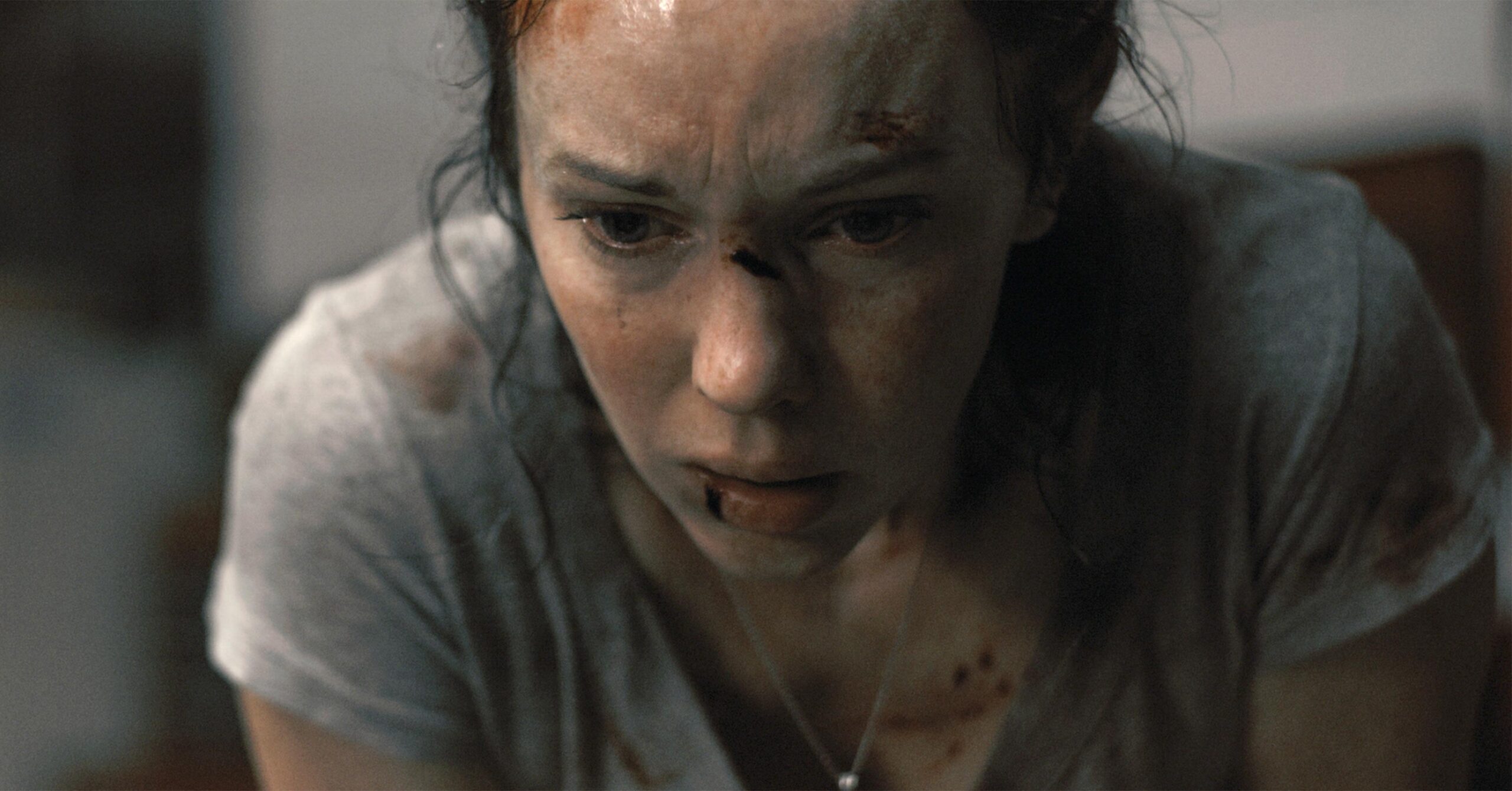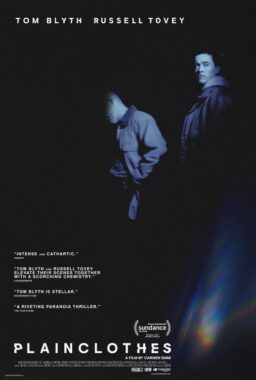Boldness is a facet that comes within the DNA of a lot of movies programmed at Fantasia, especially as rising filmmakers use their independence to tell a genre story in a different way. That’s especially the case with two thrillers making their the world premieres at the Montreal festival, both being projects that are defined by the risks its storytellers are willing to make.
The first stroke of brilliance within Matthew Pope’s exceptionally confident debut “Blood on Her Name” is how it kicks off its neo-noir as a “why-dunit,” after making it unmistakable about the who (a woman named Leigh), where (a car repair shop) and what (a skull-cracking murder). From this opening sequence, which starts with a pool of blood and a corpse on the ground, the script by Pope and Don M. Thompson thinks forward—a lot of other storytellers would use this as means to go to a flashback, but this movie excitingly tackles its crime in the present, building its tension out of what happens next and carefully, naturally painting a full backstory in the process. The story’s only flashbacks are for Leigh as she reflects upon being at a similar moral crossroads during her childhood, a traumatic event that motivates all of her current decisions.
This is where Bethany Anne Lind’s visceral performance as Leigh takes over, playing someone who has committed the unthinkable and is yet trying to hold all of it together in front of her son (Jared Ivers), her dirty cop father (Will Patton), and Rey (Jimmy Gonzales), the repair shop owner. Lind gives an incredibly vivid sense of the turmoil within Leigh, especially as she’s at a loss about what to do with the body, and how to clear up any of her tracks. In a sharp storytelling manner in which no scene or piece of dialogue feels spared, “Blood on Her Name” takes us step by step through her emotional journey. All the while, Lind keeps us on edge, and we deeply feel her struggle of trying to be a good person in a whole mess of bad.
It’s not just Leigh—all of the characters here are pushed to a tangible edge, and at the same time you believe that they have the capacity to point a gun at someone and perhaps take a life, especially as part of the resounding theme of parents protecting their children by any means necessary. Within this script’s lean and mean course of events, the consequences are generational, and the morality is gorgeously complicated.
This is the kind of original storytelling that takes after the greats—I love the previous comparisons that my colleague Katie Rife made with the likes of “Blue Ruin” and “Cold in July,” and would add the likes of “Blood Simple” and “One False Move,” those two titles in particular helping pronounce the ingenuity of their respective writers and directors in an unforgettable way. I can only imagine the same will happen for the people behind “Blood on Her Name”—they’ve quickly defined themselves as storytellers who get down and dirty with inspired original ideas, and can orchestrate spectacular genre entertainment in the process.

Writer/director David Marmor’s “1BR” starts off without much promise, but gets much better once its inspired narrative decision takes full control. Before then, though, it’s dangerously bland visually and story-wise almost to the point of parody, following a young woman named Sarah (Nicole Brydon Bloom) who moves into an apartment complex in Los Angeles. She’s too obviously a horror screenwriter’s idea of fresh meat—a self-proclaimed daddy’s girl, with an interest in study fashion that’s distracted from with a thankless job in a cubicle. Her world is composed of other queasy creations, like a friend at work whose sole purpose is to either ask her questions or be sassy, or one new apartment neighbor who always leers at her with a sheepish look with an eyepatch. As Sarah starts to hear strange sounds at night in her new one bedroom apartment, there’s not a lot of hope that what’s behind the walls could be all that enticing.
But “1BR” is worth sticking around for when it gets to its main horror, a Scientology-like cult that consumes the residents and makes them part of a mini-utopia that’s truly unsettling. With confident direction, Marmor takes viewers through the step-by-step process of how Sarah is broken and then ingratiated into this cult that preaches about selflessness and community, while never making it clear where the next scene is going to take us.
The movie also shows a tactfully nasty side, even just by teasing grotesque violence that’s a part of initiation, but also its sincerity to the focal cult, whose intent is more complicated than cultivating evil. Instead of “1BR” playing out in a way that feels average, it takes the bolder route of immersing us in the horror of losing free-will, while Bloom’s nimble, frightened and then submissive performance does not lose sight of the woman she once was before she started to accept the ways of the group. All of this boldness pays off—the film’s third act might end at an expected place, but “1BR” stands out with how it gets there, and the unique horror along the way.












